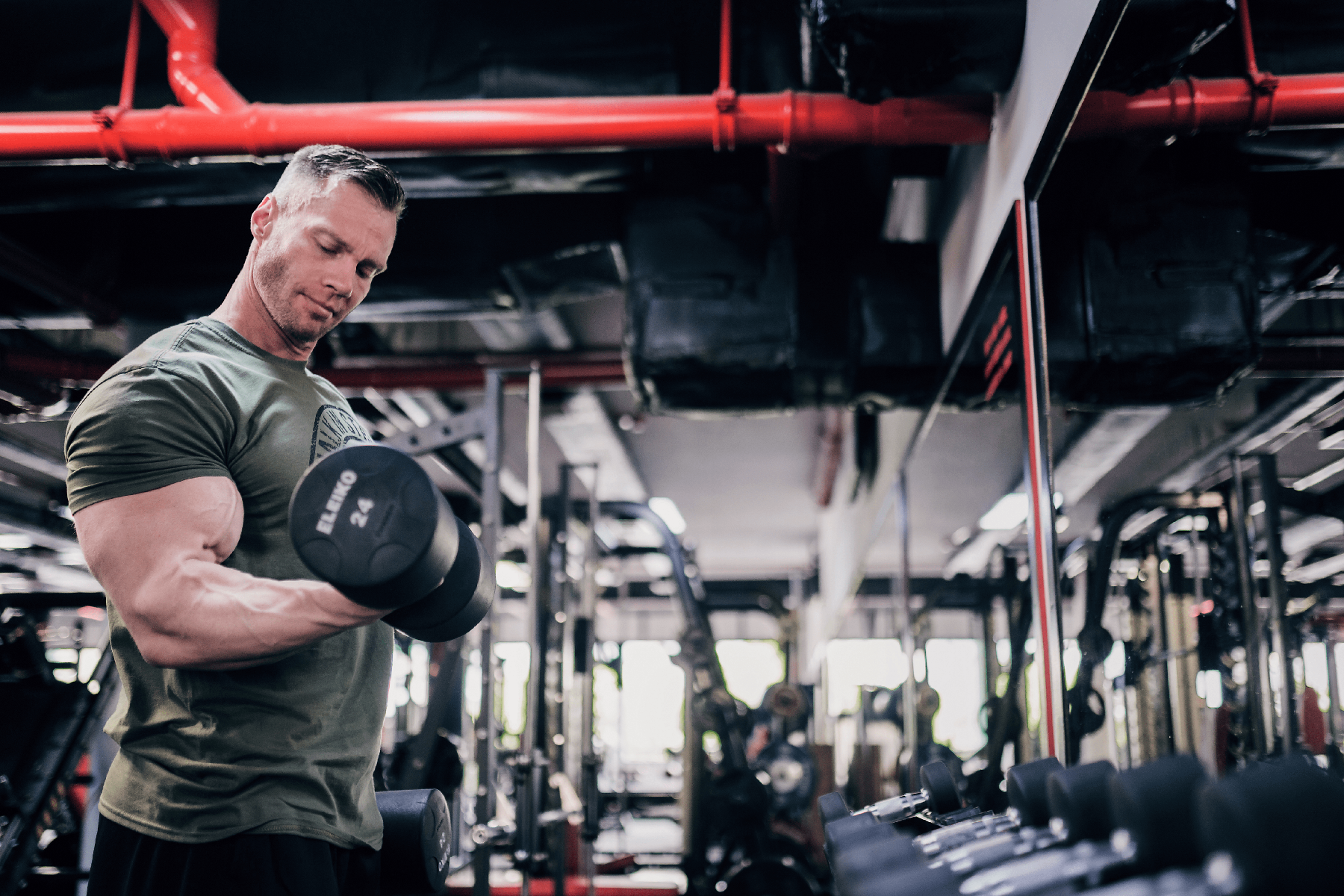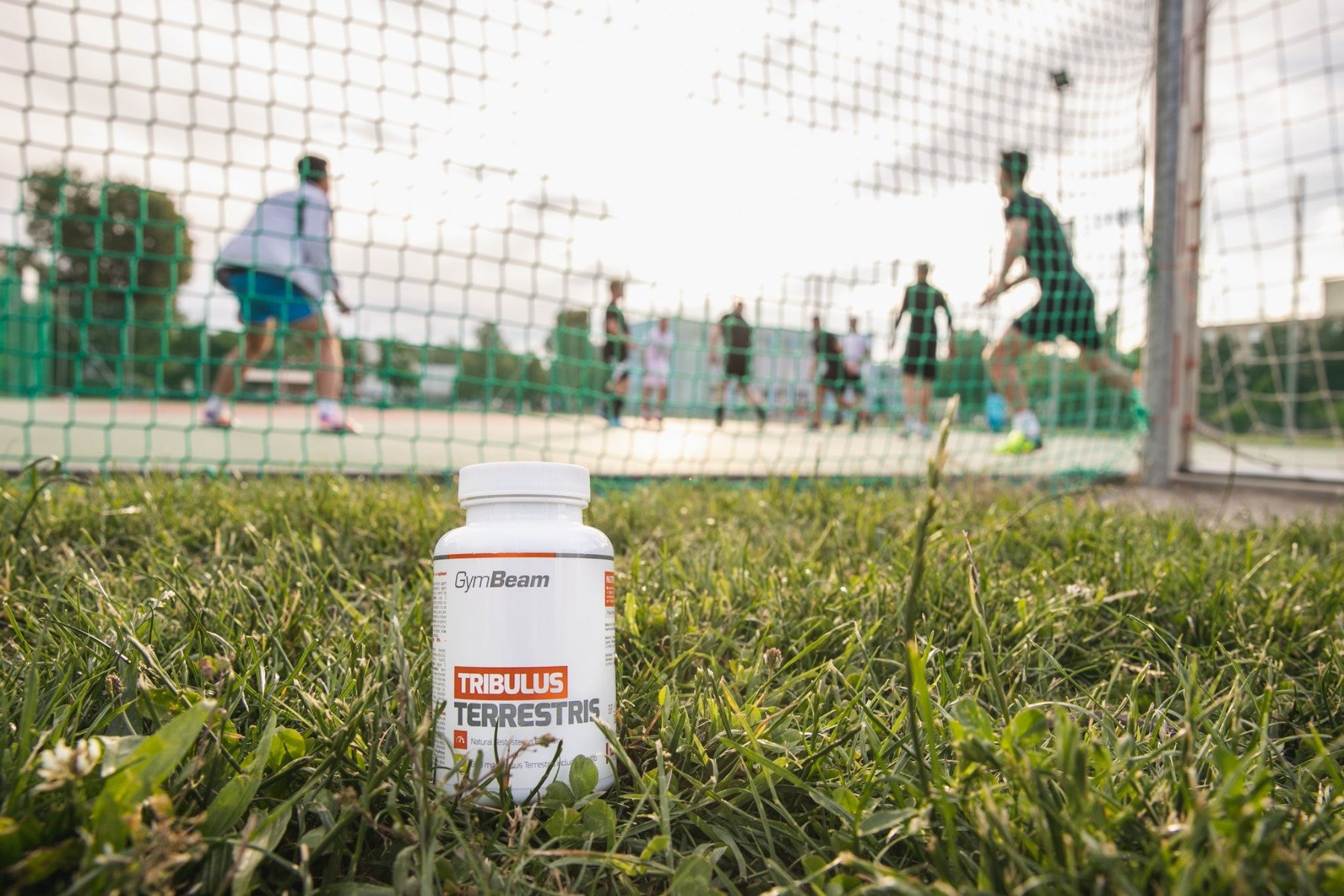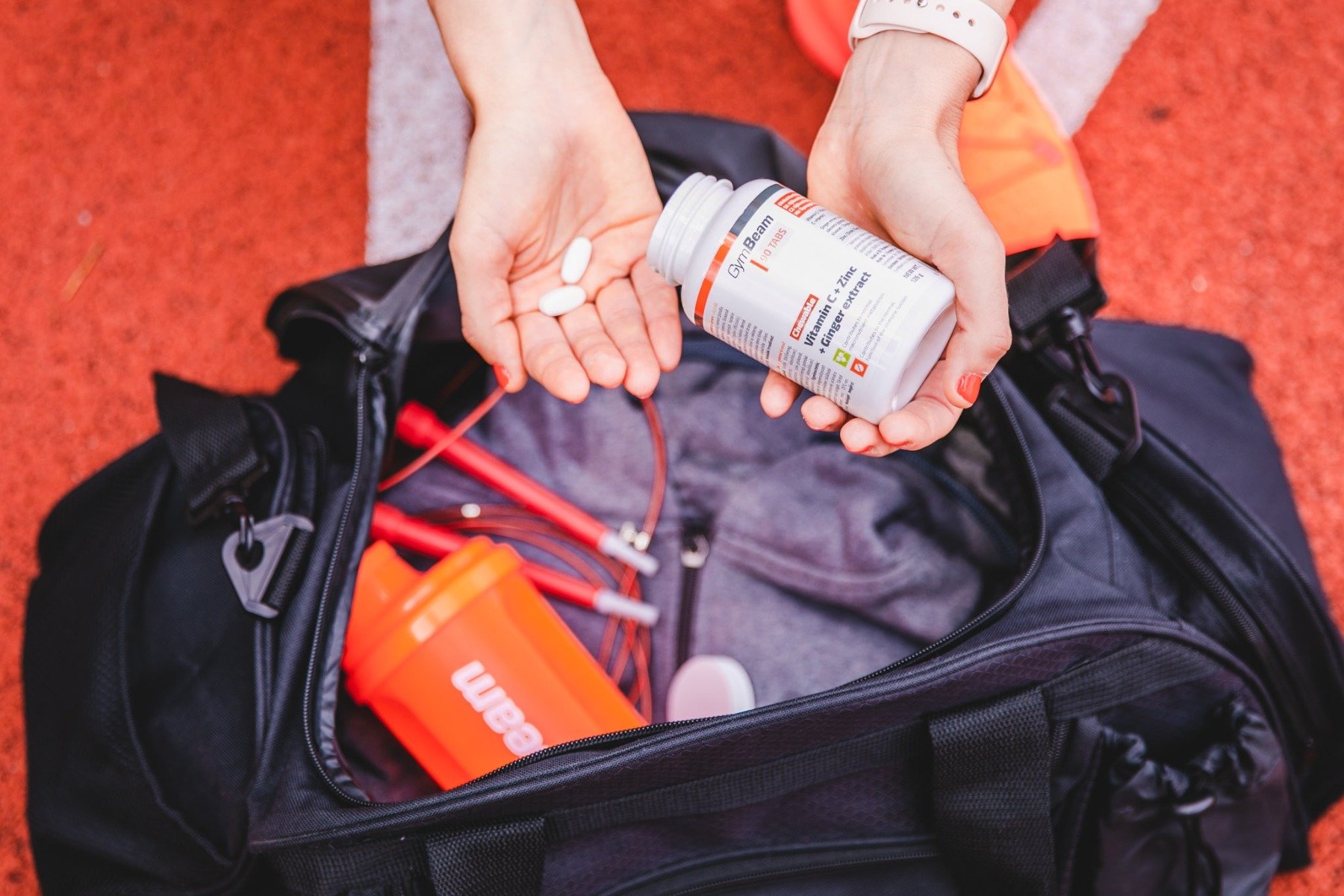Table of Contents
Testosterone and progesterone are most commonly associated with male and female fertility, which is, of course, true. However, in addition to this function, testosterone is also essential for muscle growth and maintaining optimal weight. In addition to supporting pregnancy, progesterone also affects metabolism. Learn about the role of these important hormones and how to keep them at normal levels.
Hormones testosterone and progesterone
The endocrine system belongs to the systems of the human body and includes glands, whose role is to produce hormones. There are several glands in the body, such as the thyroid gland, the pancreas, or the testicles and ovaries. These produce specific hormones whose job is to transmit information to a particular part of the body. They travel through the bloodstream to specific parts of the body to “command” the tissue “when, what, and for how long.” Their activity is very important for the organism, they participate in several processes, and their poor functioning can have serious consequences. Because they control metabolism, mood or reproduction, their imbalance can lead to infertility, weight gain or diabetes. Important hormones include testosterone and progesterone, which are not the only hormones responsible for male and female fertility. [1] [2]
Testosterone
Testosterone is a hormone that is often considered exclusively male, but small amounts of testosterone are also present in women. It is a hormone classified as androgens, a group of hormones that affect sexual life, insulin sensitivity, but also body structure and metabolism. [3] [4]
The history of health-promoting testosterone is longer than you think. Firstly, it was a part of the “Elixir of Life” presented at a scientific conference in Paris in 1889. It was an exceptional substance that improves mental and physical health. This modern miracle was a mixture of seed, blood and fluid from the testicles of dogs and sea pigs. Who knows how customers would react to such a combination today. [9]
Testosterone in the right amount is essential for man because it affects not only sexual desire and sperm production. It also controls fat distribution, bone mass, red blood cell production and a very important function – muscle size and strength. It is formed mainly in the gonads, in men in the testes and in women in the ovaries. Leydig cells in the testes are primarily responsible for the production of testosterone in men. Besides, a small proportion of testosterone is produced in both sexes and in the adrenal glands. Testosterone is crucial for men because it is present in sperm production, and its deficiency can cause male infertility. Although testosterone is primarily associated with sexual activity and fertility, the article will focus on its importance for muscle mass. [4] [5]

Progesterone
Progesterone is a female hormone that belongs to steroid hormones called progestogens. It is one of the two female sex hormones, more precisely the lesser-known one, because estrogen is probably also known to men. Progesterone is produced in the ovaries, mainly in part called the corpus luteum, during the second half of the menstrual cycle. The corpus luteum is a temporary gland of a ruptured ovarian follicle. It may sound a bit technical, but this follicle envelops the egg when it is released during ovulation. [6] [7] [8]
Progesterone is primarily produced in the ovaries, but can also be produced by the adrenal glands and placenta. Its function in a woman’s body is to regulate menstruation and support the early stages of pregnancy. Progesterone also prepares the body for pregnancy, provided the egg is fertilised. You may be surprised, but progesterone is not a pure privilege of women and is also formed in the male body, specifically in the adrenal glands. Progesterone function in men is associated with sperm development. Certain hormones are preferentially important for men or women, but this does not mean that primarily the female hormone has no role in the male body, such as progesterone. [6] [8]

Impact of testosterone and progesterone on muscles
Low testosterone levels in men and high levels in women have an adverse effect on the body. In men, low testosterone levels affect the body structure. These may include an increase in fat and total weight, insensitivity to insulin, an increased incidence of diseases related to the glucose levels in the blood or a decrease in caloric expenditure.
It follows that testosterone has a significant effect on the functioning of male metabolism. Testosterone has an impact on the growth of muscle mass, which is useful for increasing strength and control over body weight. Want to know more about insulin sensitivity? Read the article – Insulin Sensitivity – How to Increase It and Prevent Insulin Resistance. [9] [10]

A 1989 study examined the impact of testosterone on muscle mass and muscle protein synthesis by administering testosterone enanthate to 9 participants for 12 weeks. According to the results, testosterone increased protein synthesis in all subjects by an average of 27%. Research suggests that testosterone causes an increase in muscle mass due to an increase in muscle protein synthesis. [11]
According to a 2001 study, testosterone supplementation can increase muscle mass in men with low testosterone levels. It is also stated that it is not clear whether its supplementation can improve the quality of life associated with health. Testosterone increases the maximum muscle strength depending on the dose what can have an importance in the case of power-lifting.
At the same time, it should be added that the significance of testosterone for improving performance during endurance activities has not been demonstrated. Therefore, there is no doubt that testosterone is important for building muscle mass. It is also interesting to note that the mechanisms by which testosterone promotes muscle building are unknown. [12]
Testosterone in the body affects several processes; in addition to increasing muscle mass, it also has an impact on weight control. This is evidenced by the findings of a 2014 study examining the importance of testosterone treatment in obese and overweight men. The aim was to clarify the improvement of body structure, permanent weight loss, but also the increase in muscle mass and loss of fat content. [20]
According to the results, testosterone therapy is an effective way to lose weight in obese men with testosterone deficiency permanently. This method of treatment allows a significant and sustainable weight reduction, a reduction in waist circumference and BMI, or a reduction in fat content and an increase in muscle mass. [20]
The impact of progesterone on muscle growth in postmenopausal women was demonstrated in a 2013 study. According to the study, it also increased the activity of the gene (MYOD1), which is useful for building muscles. The research aimed to evaluate the influence of sex hormones on muscle protein synthesis and gene expression on growth-regulating factors. Women, before and after menopause, were involved in the research. [13] [14]
According to a 1982 study, progesterone affects the metabolism of macronutrients. It leads to hyperinsulinemia, and at the same time promotes glycogen storage in the liver. Hyperinsulinemia is a state in which the level of insulin in the blood is higher than normal. This effect is likely to be due to the islets of Islets of Langerhans. Progesterone reduces the impact of insulin on glucose metabolism in skeletal muscle and adipose tissue. Most importantly, however, it has a catabolic effect on protein metabolism and promotes the storage of body fat. [16] [17]
Like testosterone for men, progesterone is a more dominant hormone for women. However, the truth is that men also need progesterone, because it is a kind of “counterpart” and helps to act against estrogen in the male body. Among other things, it is a precursor to testosterone and decreases with age with testosterone, while estrogen levels increase. Its deficiency in women can manifest itself with depression, fatigue or muscle loss and low libido. Men with progesterone deficiency are at increased risk for several diseases, such as osteoporosis, arthritis or prostate cancer. Just as women have a certain level of testosterone, men also have and even need progesterone for the body to function fully. [15]

Low and high levels of testosterone
Too low or too high level of testosterone obviously affects a person’s health. The amount of testosterone decreases during a man’s lifetime; its highest values are around the age of 20. Middle-aged men typically have a loss of 1% of testosterone per year. [18]
Low testosterone levels are associated with manifestations, including [19]:
- loss of muscle mass
- low libido, which is associated with a low number of sperms, reduced testicles and infertility
- loss of hair
High testosterone levels can be manifested by, for example [19]:
- reducing the testicles and reducing the number of directions (yes, at low as well as at high)
- increase in muscle mass
- insomnia and headaches
- mood swings and aggressive behaviour
- acne
You might be interested in these products:
Unfortunately, men lose their natural testosterone content with age. However, there are some tips on how to maintain its adequate level [9] [21] [22]:
- Maintain your weight – High body fat is associated with lower testosterone levels, but this does not mean that you should starve to maintain right levels. Various low-calorie diets and deliberate starvation can have a similar negative impact as overeating.
- Be aware of stress – Chronic stress is another “malice” for your testosterone. Keep in mind, however, that the reasons for chronic stress also include overtraining. Yet, the opposite effect has acute stress, such as demanding training with a large volume. You may be surprised, but even increased endurance training is not exactly beneficial for testosterone. Mild endurance training has little or no effect on testosterone, but overdoing it with this type of exercise can have a negative impact.
- Be aware of alcohol – Excessive drinking is the enemy of maintaining testosterone, so consider whether your evening plans are not the reason for the potentially low testosterone levels.
- Get enough sleep – If you want to maintain the right testosterone levels, also get enough sleep – 7-8 hours. Insufficient sleep affects hormone levels in the human body.
- Try nutritional supplements – Enough vitamin D or zinc can boost your testosterone levels. D-aspartic acid (DAA), a natural amino acid with the ability to increase testosterone levels, is found in legumes and nuts. Thanks to the reduction of cortisol, it is also affected by ashwagandha, known in ancient Indian medicine. Another useful herb is Tribulus (Tribulus Terrestris), a very popular extract from a plant known as Ground Anchor.
Want to know more about low testosterone? Read the article – Symptoms of low testosterone and how to fight it.

Low and high levels of progesterone
Testosterone is more important for men and progesterone for women. Therefore, proper progesterone levels may not bother men, provided that adrenal dysfunction is not suspected. Progesterone is not commonly tested in men, and its typical levels are less than 0.20 ng/ml. Progesterone levels are measured in women, and there are several reasons for testing them, such as determining the causes of infertility, diagnosing adrenal disease, or determining if ovulating occurs. The amount of progesterone in women varies with the menstrual cycle. Women with low progesterone levels may have difficulty conceiving and staying pregnant. [8] [23]
Low progesterone levels in women can be manifested by mood swings, migraines or irregular menstrual cycles. In the case of attempts to conceive, progesterone deficiency can be a problem, in which case hormone therapy can be used. This can help with a thicker lining of the uterus and higher levels of progesterone, with the help of various products, such as creams or gels. Also, low progesterone levels may be a sign that the ovary has trouble releasing the egg during ovulation. This problem occurs, for example, in women suffering from polycystic ovary syndrome. [6] [23]
In addition to hormonal therapy, you can try natural pathways to increase progesterone, such as stress control. Try to be calm, because, during stress, the body excretes the stress hormone cortisol instead of progesterone. You can also increase progesterone by increasing your intakes of specific nutrients, such as vitamins B and C. Another tip is to eat food containing zinc. [23]
High levels of progesterone are not such a problem because they do not cause health problems. Its amount increases naturally during pregnancy, but it can also occur due to congenital adrenal hyperplasia. Adrenal hyperplasia is a congenital disease that causes high levels of male hormones and low levels of cortisol. The disease results in the subsequent development of male characteristics in women, and the earlier onset of puberty in both sexes. [6] [24]

Keeping testosterone and progesterone levels in norm is important for maintaining overall health and preventing various complications. Although both hormones are found in both men and women, testosterone in men and progesterone in women play a dominant role. In this article, you learned about the importance of hormones for health, especially for muscle maintenance and weight loss.
We sincerely believe that we have broadened your horizons again and you have learned everything you need to know about testosterone and progesterone. Do you want your friends to know about these hormones? Feel free to support the article by sharing.
[1] Michael Dansinger, MD – The Endocrine System and Glands of the Human Body – https://www.webmd.com/diabetes/endocrine-system-facts
[2] Your Health and Hormones – https://www.hormone.org/your-health-and-hormones
[3] Maegan Boutot – Androgens 101 – https://helloclue.com/articles/cycle-a-z/androgens-101
[4] Markus MacGill – Why do we need testosterone? – https://www.medicalnewstoday.com/articles/276013
[5] Testosterone – https://www.yourhormones.info/hormones/testosterone/
[6] Progesterone – https://www.yourhormones.info/hormones/progesterone/
[7] Glossary – https://www.yourhormones.info/glossary/c#corpus-luteum
[8] Jill Seladi-Schulman – Everything You Need to Know About Progesterone – https://www.healthline.com/health/progesterone-function
[9] Chris Lockwood – All About Testosterone! – https://www.bodybuilding.com/content/all-about-testosterone.html
[10] Ann Pietrangelo – How Testosterone Benefits Your Body – https://www.healthline.com/health/benefits-testosterone
[11] R C Griggs, W Kingston, R F Jozefowicz, B E Herr, G Forbes, D Halliday – Effect of Testosterone on Muscle Mass and Muscle Protein Synthesis – https://pubmed.ncbi.nlm.nih.gov/2917954/
[12] S Bhasin, L Woodhouse, T W Storer – Proof of the Effect of Testosterone on Skeletal Muscle – https://pubmed.ncbi.nlm.nih.gov/11431134/
[13] Ana Aleksic – Uses of Progesterone Cream & Pills + Side Effects – https://selfhacked.com/blog/top-21-science-based-health-benefits-progesterone-4-drawbacks/
[14] Gordon I. Smith, Jun Yoshino, Dominic N. Reeds, David Bradley, Rachel E. Burrows, Henry D. Heisey, Anna C. Moseley, and Bettina Mittendorfer – Testosterone and Progesterone, But Not Estradiol, Stimulate Muscle Protein Synthesis in Postmenopausal Women – https://www.ncbi.nlm.nih.gov/pmc/articles/PMC3879672/
[15] Learn How to Increase Progesterone in Men – https://www.bodylogicmd.com/hormones-for-men/progesterone/
[16] R K Kalkhoff – Metabolic Effects of Progesterone – https://pubmed.ncbi.nlm.nih.gov/7039319/
[17] M. Regina Castro – Is hyperinsulinemia a form of diabetes? – https://www.mayoclinic.org/diseases-conditions/type-2-diabetes/expert-answers/hyperinsulinemia/faq-20058488#:~:text=Hyperinsulinemia%20(hi%2Dpur%2Din,associated%20with%20type%202%20diabetes.
[18] Charles Patrick Davis – High and Low Testosterone Levels in Men – https://www.medicinenet.com/high_and_low_testosterone_levels_in_men/views.htm
[19] Testosterone – What It Does And Doesn't Do – https://www.health.harvard.edu/drugs-and-medications/testosterone--what-it-does-and-doesnt-do
[20] Abdulmaged M. Traish – Testosterone and weight loss: the evidence – https://www.ncbi.nlm.nih.gov/pmc/articles/PMC4154787/#:~:text=Testosterone%20therapy%20increases%20LBM%2C%20reduces,approach%20to%20management%20of%20obesity.
[21] Colleen M. Story – Options for Increasing Your Testosterone – https://www.healthline.com/health/low-testosterone/testosterone-replacement-therapy-and-other-options
[22] Rudy Mawer – The 8 Best Supplements to Boost Testosterone Levels – https://www.healthline.com/nutrition/best-testosterone-booster-supplements
[23] Ana Gotter – Low Progesterone: Complications, Causes, and More – https://www.healthline.com/health/womens-health/low-progesterone
[24] Congenital adrenal hyperplasia – https://www.yourhormones.info/endocrine-conditions/congenital-adrenal-hyperplasia/


Add a comment
You must be logged in to post a comment.